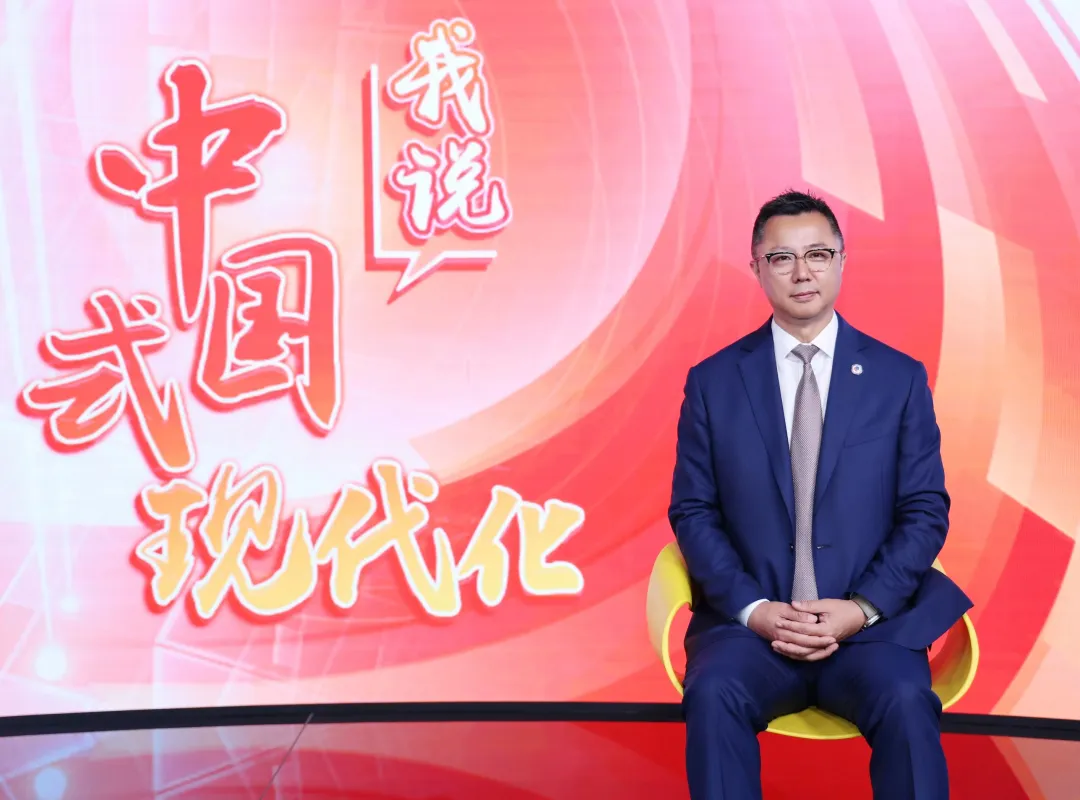潘锋接受人民日报海外网专访
人民日报海外网“我说,中国式现代化”栏目本期专访人物为欧中经济合作与发展理事会理事长潘锋。主持人就中欧经济合作的新趋势和前景、中欧地理标志协定的实施等话题对潘锋理事长进行了采访。

在访谈中,潘锋理事长表示,2023年中欧贸易总额达到7830亿美元,中国产业升级和高技术制造业的快速发展,为欧洲市场带来了创新和绿色的产品,满足了消费者需求。他强调,中国产能的出海有利于全球经济和产业活力的提升,呼吁西方与中国合作共赢,共同推动绿色低碳转型。潘锋提到,中国全面取消制造业领域外资准入限制,为各国企业进入中国市场提供了便利,特斯拉在华销量的大幅增长就是明证。
在农产品方面,2023年欧盟对中国的出口总额仍达到了146亿欧元,中国作为欧盟农产品出口的第三大目的地,展现了双方在农产品合作上的坚实基础。潘锋介绍了中欧地理标志发展联盟对中欧农副食品,特别是地标产品的推广工作和成果,自2021年中欧地理标志协定签署后,中欧互认地标产品现有200个,并将增至550个。
特别值得一提的是,潘锋理事长强调了欧中经济合作与发展理事会的成立,其植根于欧洲,以高层平台的形式和功能,积极推动建设性的经济、文化和社会投资与发展。我们看到欧洲的大多数政要、有识之士是希望跟中国加强合作的,或许有些不同声音,潘锋建议中欧双方应当平心静气,共同商议解决方案,共同寻找发展之道,实现总书记倡导的共商共建共享精神。欧中经济合作与发展理事会是一个由前欧洲国家领导人发起的欧洲组织,旨在促进欧洲与中国以及全球商业界之间的互利合作。西班牙前首相萨帕特罗担任主席,潘锋任理事长。潘锋先生长期致力于中欧交流合作工作,这份坚持源于他对促进中欧两大经济体之间相互理解和合作的深厚信念,且中欧合作对于推动全球治理体系的完善和国际关系的和平发展具有重要意义。潘锋希望通过努力,增进中欧双方的相互了解和信任,为中欧关系长远发展做出贡献。此次专访展现了中欧经济合作的广阔前景,在这个多变的世界中,中欧作为两个重要的全球参与者,有责任也有能力共同维护多边主义,推动构建开放型世界经济。
Pan Feng, Chairman of EU-China Economic Cooperation and Development Council, was interviewed by People's Daily Overseas Edition for the column “China’s modernization through the lens of my story” on China-EU economic cooperation, overcapacity in China, and the implementation on China-EU Geographical Indications Agreement.
In the Interview, Chairman Pan stated that the total trade volume between China and EU reached 78.3 billion US dollars in 2023. The industrial upgrading and the fast development of the high-tech manufacturing in China bring innovative and green products to Europe market, meeting consumer demand. He emphasized that the overseas expansion of China’s production capacity benefits global economic and industrial vitality, calling for win-win cooperation between the West and China to jointly promote green and low-carbon transformation. Pan mentioned, China has fully lifted restrictions on foreign investment in the manufacturing sector, facilitating foreign companies’ entry into the Chinese market, with the significant increase in Tesla’s sales in China as proof.
As for agriculture products, China’s export to EU still reached 14.6 billion EUR in 2023. China, as the EU’s third-largest destination for agricultural exports, has demonstrated a solid foundation between two sides on agriculture products cooperation. Pan also shared the promotion and results agricultural and sideline products, especially the GI products done by China-EU GI Development Alliance. Since the signing of the China-EU GI Agreement in 2021, there are 200 mutual recognized GI products, and soon the number will be increased to 550.
Notably, Pan stressed the establishment of the EU-China Economic Cooperation and Development Council which is rooted in Europe and promotes win-win and cooperation between Europe and China, as well as between Europe and the world business community, in the form and function of a high-level platform, and actively promotes constructive economic, cultural, and social investment and development. He noted that most European political leaders and insightful individuals are keen to strengthening cooperation with China, despite some dissenting voices. Pan suggested that China and Europe should calmly negotiated solutions for common development and embody the spirit of consultation, joint contribution, and shared benefits advocated by President Xi. The president of the council is the Zapatero, the former prime minister of Spain, while Pan Feng is the chairman of the council. Pan has long been committed to EU-China Cooperation, driven by his belief in promoting mutual understanding and cooperation between the two major economies. He also believes that EU-China cooperation means a lot for improving global governance system and international relations, and hopes the two sides can increase trust and understanding thus making contribution to the long-term development. This interview showcased the broad prospects of EU-China economic cooperation. In this ever-changing world, as two important player, China and Europe have responsibility and capacity to maintain multilateralism and promote the building of an open world economy.